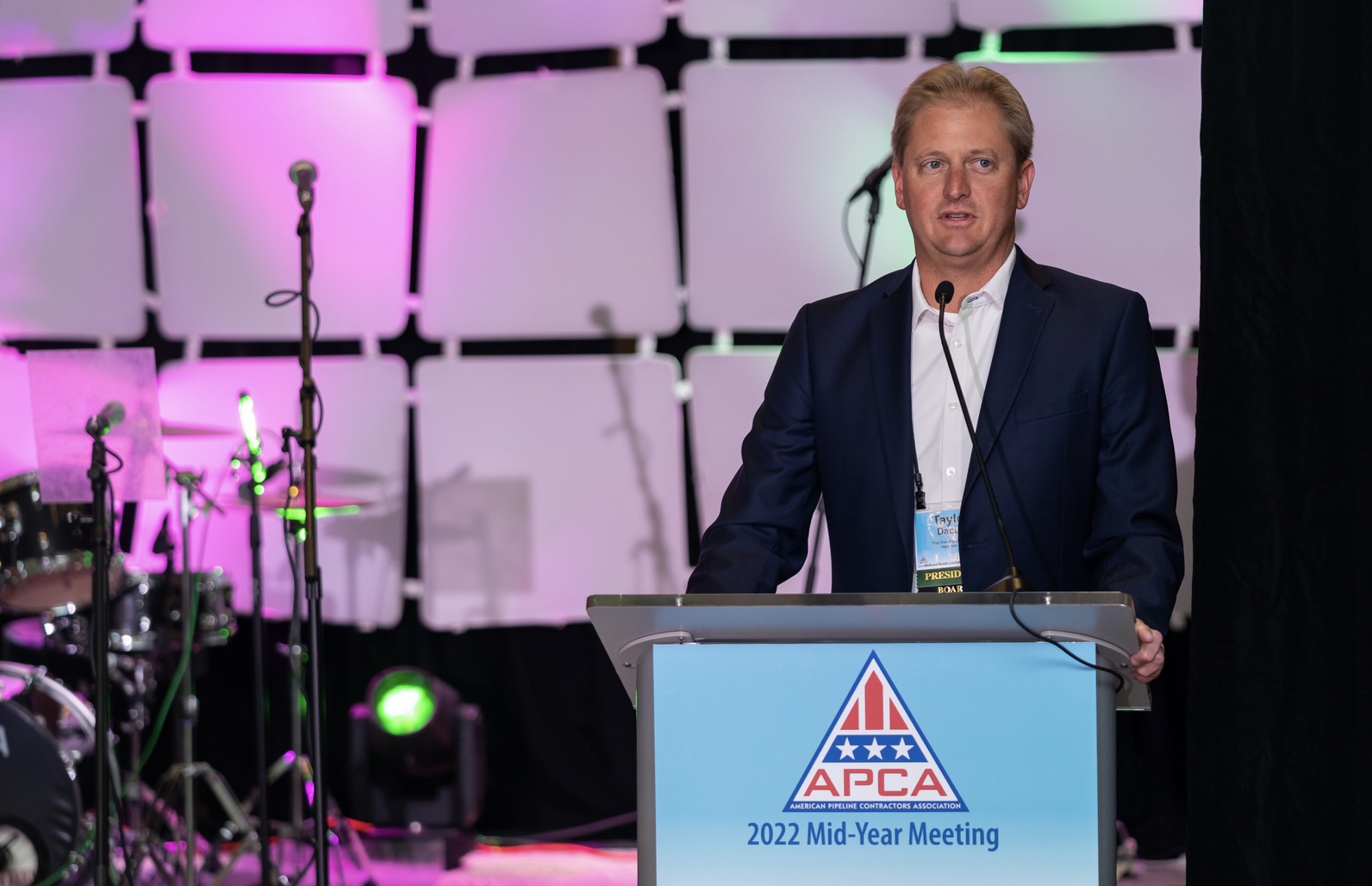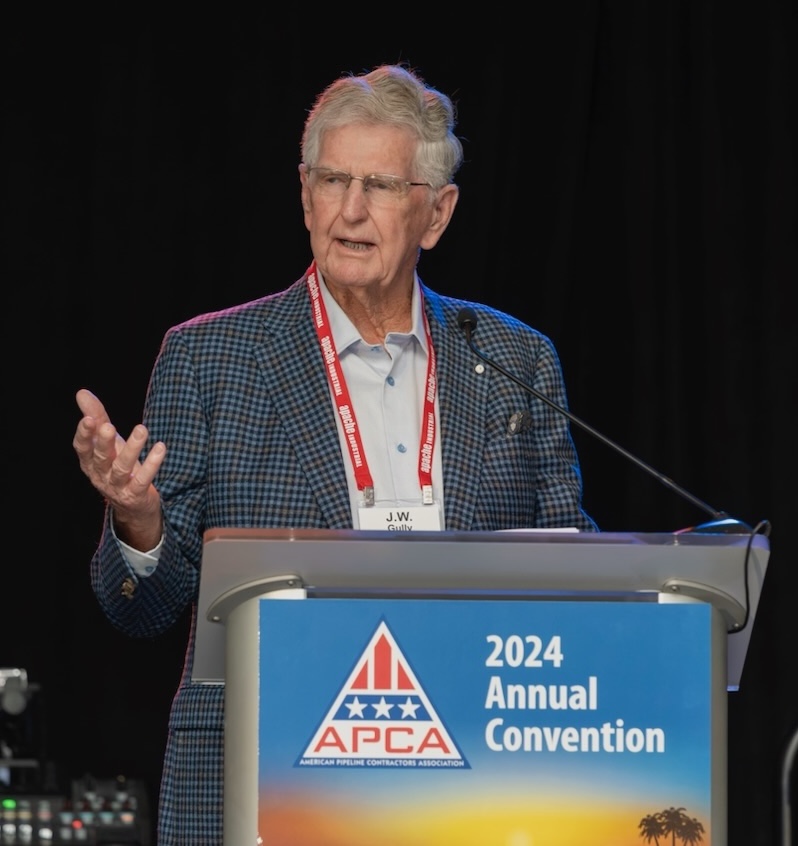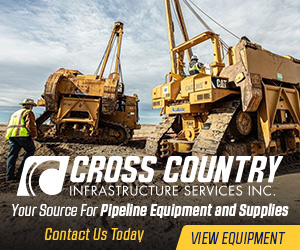APCA Comments in Opposition to NOPR on Project Labor Agreements
In comments to the Biden administration on October 18, the American Pipeline Contractors Association strongly objected to the proposed use of government-mandated Project Labor Agreements on federal construction contracts of $35 million or more.
"The proposed PLA rule on federal contracts over $35 million will reduce competition and drive up costs for the American taxpayer, resulting in a far slower rate of pipeline buildouts and upgrades needed to serve American families and businesses. For these reasons, the hard-working men and women who build America's vital energy pipelines strongly oppose the proposed PLA rule," APCA stated.
APCA Announces Release of 811 Emergency Study
APCA is proud to inform you of today's release of a new, comprehensive study of the nation's 811 system, which found that failures in the system are costing the U.S. some $61 billion a year in waste and excess costs and creating unnecessary hazards for public safety.
The study, unprecedented in scope and scale in the damage prevention space, was conducted by Continuum Capital for the Infrastructure Protection Coalition (IPC), a coalition of industry groups who represent regular users and stakeholders in the 811 system and want to see it run safely and efficiently.
You can view the study at the coalition website: www.ipcweb.org.
APCA Addresses Reconciliation Pitfalls in Letter to Congressional Leaders
As Congress nears an agreement on budget reconciliation legislation, APCA President Taylor Dacus sent a letter to congressional leaders on October 28 that offers our industry’s perspective on the consideration of a methane emission fee and of several harmful labor policies.
"APCA strongly objects to including a methane emissions fee/tax in reconciliation legislation," Dacus stated. "This proposal could lead to double taxation of critical members of the energy supply chain that are at the forefront of reducing greenhouse gas emissions, including methane."
APCA Decries Keystone Revocation
The American Pipeline Contractors Association (APCA) expressed strong disappointment in President Biden’s revocation of the cross-border permit between the U.S. and Canada for the Keystone XL pipeline as part of his “Day 1” executive actions. The pipeline was being built to carry more than 800,000 barrels of oil a day from Alberta to the Texas Gulf Coast, passing through Montana, South Dakota, Nebraska, Kansas, and Oklahoma. The president’s move comes at a time when 300 miles of pipeline included in the 1,200-mile project have already been constructed and when the energy industry cannot afford to lose sacred jobs in midst of a global pandemic.
APCA Signs onto Letter Opposing Trucking Mandates
On September 16, a coalition of 31 associations, including APCA, sent a letter to the Chairs and Ranking Members of the Senate and House transportation committees opposing four costly and burdensome proposals that are being floated for inclusion the next highway bill.
Senate Committee Schedules Hearing on Ring's NLRB Confirmation
The Senate Health, Education, Labor, and Pensions (HELP) Committee announced on Wednesday that it will hold a hearing on the confirmation of John Ring to the National Labor Relations Board (NLRB) on February 14.
APCA 2022 Mid-Year Meeting Pictures
View the Photo Gallery
Use the following password to access the photos: APCA2022
JW Gully - Inducted April 9, 2024
JW Gully began working in the pipeline business in 1966 with Harbert Construction in Gonzales, Louisiana.
He later went to work for the Houston Contracting Company, starting in Krotz Springs, Louisiana as timekeeper and later as office manager. He worked in Trinidad in 1970 and then transferred to the company warehouse in Belle Chase, Louisiana. There he was manager of equipment maintenance and in charge of logistics. He handled all import and exports of equipment, parts, and supplies relating to their overseas projects.
Over the next five years, JW moved to warehouse manager, then to the Houston office as equipment manager of U.S. and overseas projects, and finally to Vice President of procurement and maintenance of equipment for worldwide projects. In that role, he made frequent trips to visit projects in the Middle East, South America, and West Africa.
JW founded Sunbelt Tractor & Equipment Company in Houston, Texas on Friday June 13, 1980, to lease and sell pipeline equipment. That is when he became a member of the Rocky Mountain Pipeline Contractors Association, which later became APCA. In 2001 he moved the company to College Station, Texas.
In 2005, JW sold Sunbelt Tractor & Equipment Company to his son, Kevin Gully, and nephew, Brooks Gully.
JW then activated Sunbelt Equipment Marketing Inc to manufacture pipe trailers, flotation wagons, and miscellaneous other units. He introduced the first rubber track crawler carrier to the pipeline industry. Sunbelt has continued to grow and provide quality equipment at competitive rates along with maintaining a legacy of honesty, service, and integrity to the highest standards.
JW said that he is proud to be part of the pipeline industry among several loyal APCA customers like Troy, Sunland, Castle, MPG, MG Dyess, WHC, and many others.
In 2015 the Houston Pipeliners Association named JW Pipeliner of the Year.
In 2023, JW sold SEMI to his daughter, Bridget Ann Fry.
Now JW is a part time-consultant and spends time golfing and enjoying his wonderful family. He and his wife of 61 years, Zelda, have three children - Kevin, Kyle, and Bridget - four grandsons and three granddaughters. They are lifetime members of the Methodist Church.
Shell Sanford – Inducted April 4, 2023
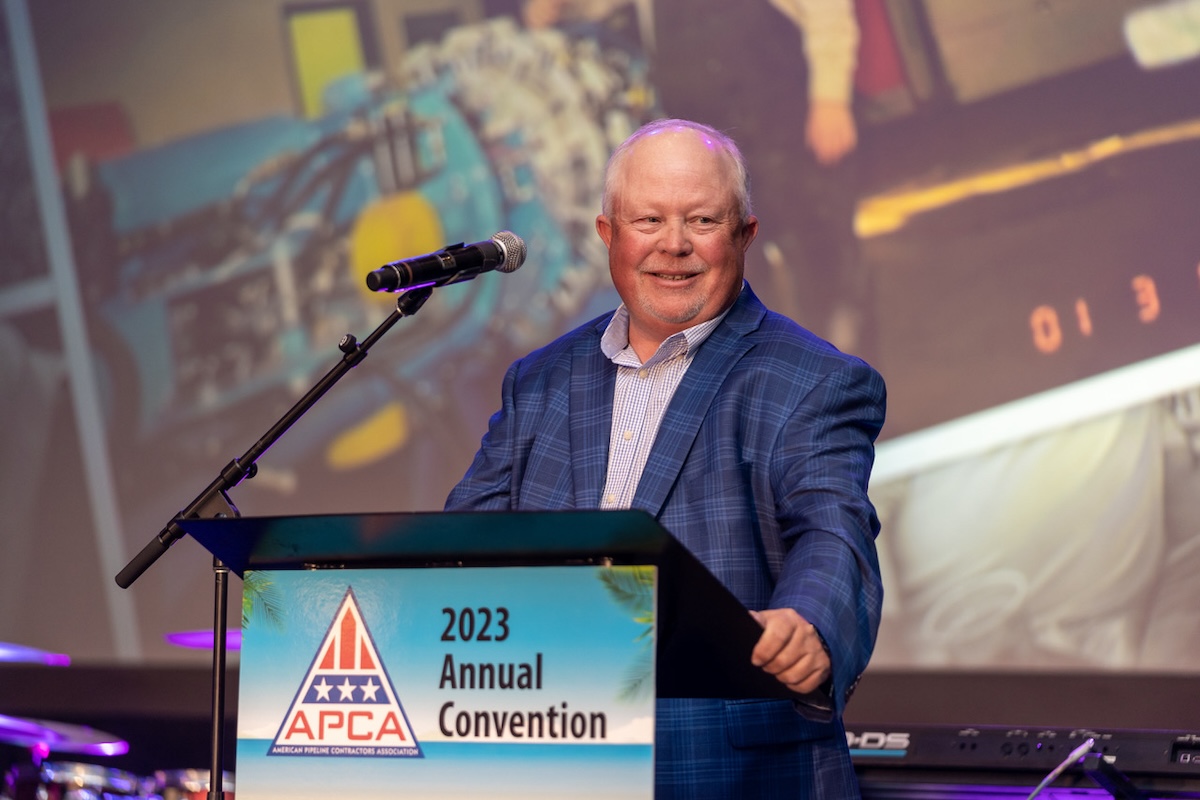 Shell Sanford's career journey began in 1983, when he joined an offshore lay barge as a laborer and welder's assistant, constructing pipelines in the North Sea near Norway. Initially planning a summer stint before returning to college, Shell ultimately fell in love with the pipeline industry and never looked back.
Shell Sanford's career journey began in 1983, when he joined an offshore lay barge as a laborer and welder's assistant, constructing pipelines in the North Sea near Norway. Initially planning a summer stint before returning to college, Shell ultimately fell in love with the pipeline industry and never looked back.
After several years in the North Sea, Shell transitioned into mechanized welding, which is what his father – Bobby Sanford – did for more than 50 years, and where Shell would spend the next 25 years of his career. This career path led Shell to work across five continents, immersing him in diverse cultures and countries. In 1985, he recalls arriving in Saudi Arabia with nothing but a duffel bag, $500 in borrowed money, and no cellphone or credit card. In addition to financial motivation, Shell found deep satisfaction in the challenging work and enjoyed the camaraderie – "Achieving something, reaching a goal as a team."
In the early 1990s, Shell co-founded RMS Welding Systems, where his son Bobby currently works, carrying on his family's industry legacy.
Several years after returning home to Texas, Shell went to work for Sunbelt Equipment in 2013, "just temporarily," he said. Shell still works there today and says the last ten years with the Gulleys have been a blessing. He has enjoyed working for a family-owned business where honesty and integrity are held to a high standard.
Shell reflects fondly on the pipeline industry's legacy nature, citing several APCA members like Troy, Castle, MG Dyess, and Sunbelt as examples. Looking forward, he is optimistic about the future: "The pipeline industry is changing every day. I'm in my 4th quarter, but I see the next generation of leaders in this industry, and I see a bright future."
Jimmy Montgomery – Inducted April 4, 2023
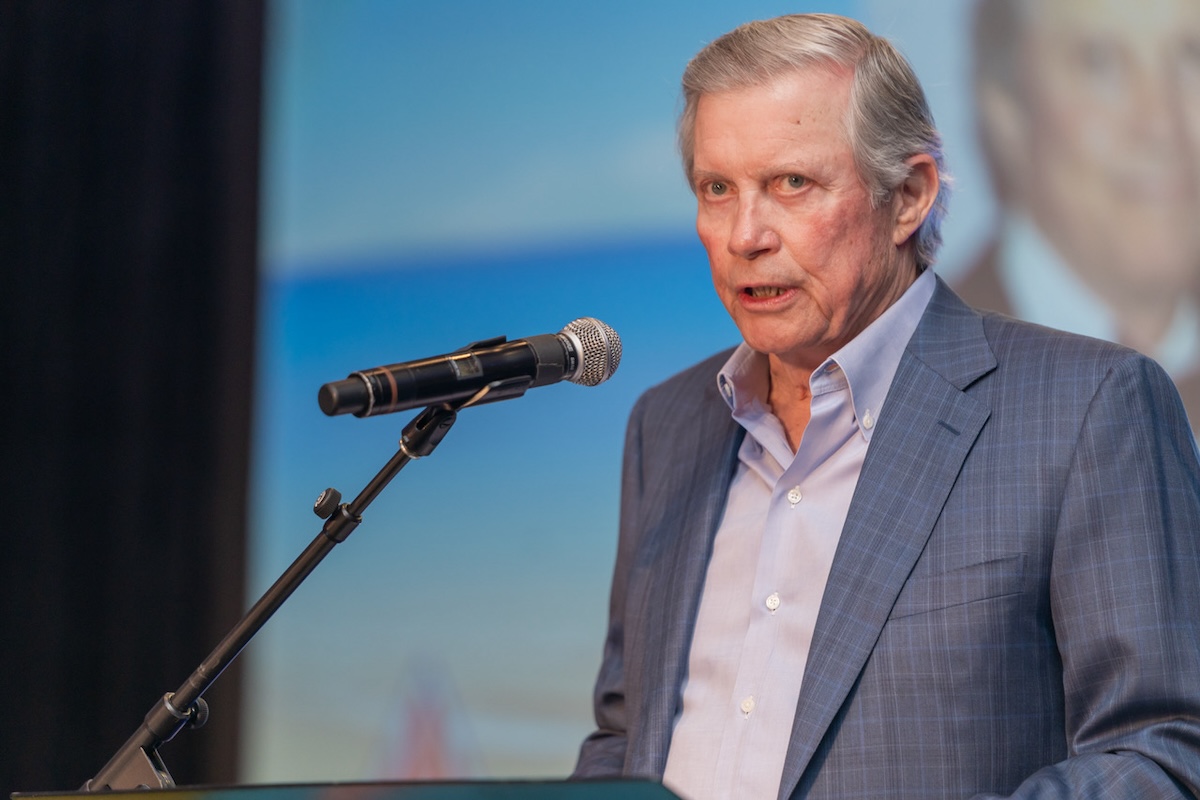 Before entering the pipeline industry, Jimmy Montgomery, a native of Odessa, Texas, served in the U.S. Marine Corps and attended North Texas State University. Following his graduation in 1970, Jimmy joined the family enterprise, building on a legacy inherited by his father.
Before entering the pipeline industry, Jimmy Montgomery, a native of Odessa, Texas, served in the U.S. Marine Corps and attended North Texas State University. Following his graduation in 1970, Jimmy joined the family enterprise, building on a legacy inherited by his father.
Lewie Montgomery, Jimmy's father, started the pipeline stringing business in 1945, building upon his experience working on emergency pipelines during World War II. Since, Montgomery Trucking has become a cornerstone in providing pipeline logistics services, with the business now thriving into its fourth generation 78 years after it began.
When Jimmy assumed management of Montgomery Trucking Co. in 1973, the company became involved with the Rocky Mountain Pipeline Contractors Association. Demonstrating his leadership and commitment to the industry, Jimmy served as President of the Associate members, and during a period when his company transitioned to the contractor segment of the association, he served as Treasurer.
Jimmy said that participating in APCA has been one of his most treasured activities, and he has a long list of great friends and mentors gained during his 50 years of membership. In turn, Jimmy has mentored numerous young professionals, fostering growth and imparting wisdom gained from his many years in the industry.
Central to Jimmy's life is his family and faith, as reflected in his large and growing family, which includes 14 grandchildren and three great-grandchildren.
David Dacus – Inducted April 4, 2023
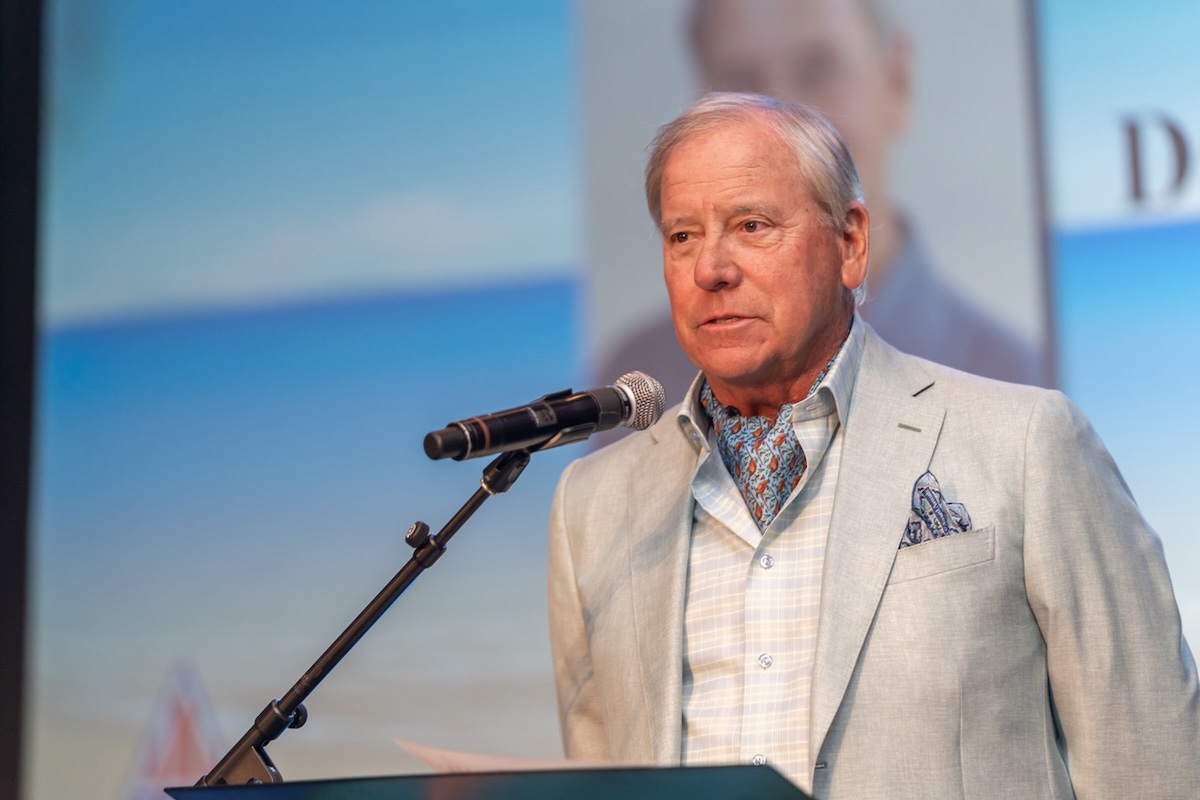 David Dacus, Chairman of Troy Construction, has been a leader in advancing the company's reputation for safe, efficient pipeline and facility construction, as well as integrity maintenance across the United States. Under his leadership, he has secured Troy's position as a forerunner in the oil and gas industry.
David Dacus, Chairman of Troy Construction, has been a leader in advancing the company's reputation for safe, efficient pipeline and facility construction, as well as integrity maintenance across the United States. Under his leadership, he has secured Troy's position as a forerunner in the oil and gas industry.
David's career in the pipeline sector began right after high school as a laborer and welder helper for his uncle, Troy Dacus. He balanced this work with his academic pursuits at Stephen F. Austin University in Nacogdoches, spending holiday breaks working for his uncle.
After graduating from college in 1979, David transitioned into full-time employment at Troy Construction and in 1992 he gained sole ownership of the company. Under his guidance, Troy experienced remarkable growth, expanding from 75 employees to over 3,000, until he passed the leadership mantle to his eldest son Taylor in 2019.
From day one, David has always prioritized the individual safety of each and every employee at the company. His tenure as leader is marked by numerous industry recognitions and awards, a testament to his effective and amiable leadership style, which is rooted in trust and integrity.
David has served many years on the APCA Board of Directors, in all the officer positions, and as President. He is currently an Advisory member to the Board. Notably, in 2018 he received the Pipeliner of the Year lifetime achievement award from the Houston Pipeliners.
In his free time, David enjoys spending time with his three sons, being a proud grandpa, and traveling with his wife, Debbie.
Morris Farrar – Inducted October 3, 2023
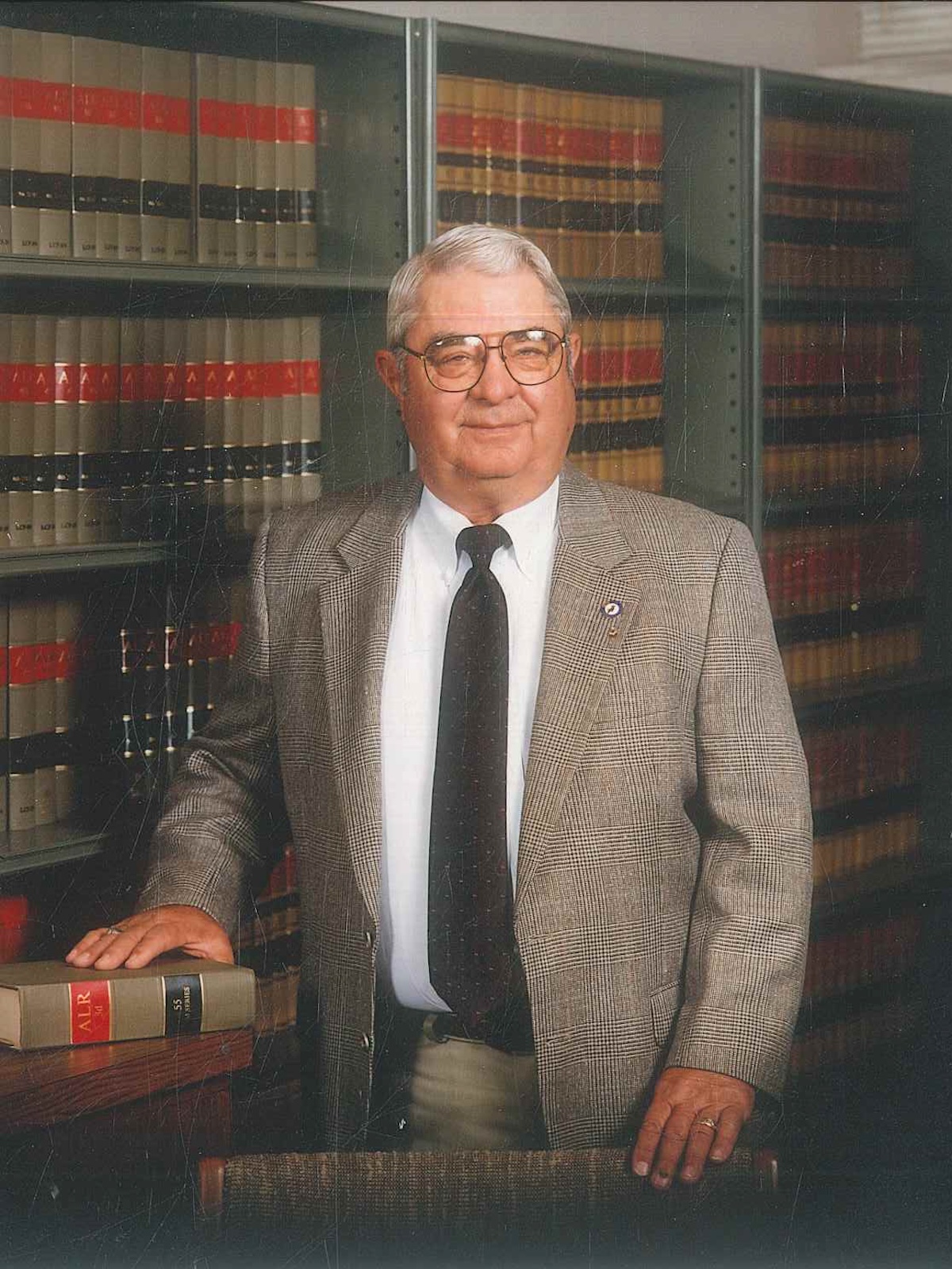 Born in 1928, Morris Farrar grew up southeast of Guthree, Oklahoma, on a farm. In addition to being in the dairy industry, his family custom cut and baled hay to supplement their income. When his father became ill during his freshman year, Morris left high school to support his family as the eldest son.
Born in 1928, Morris Farrar grew up southeast of Guthree, Oklahoma, on a farm. In addition to being in the dairy industry, his family custom cut and baled hay to supplement their income. When his father became ill during his freshman year, Morris left high school to support his family as the eldest son.
Morris embarked on his pipeline career in 1949, working on a significant 300-mile pipeline project stretching from Cushing, Oklahoma, to Borger, Texas. Then in 1952, he married the love of his life, Barbara “Bobbie” Pickle-Farrar. Less than a year later, he was drafted into the U.S. Army, serving in the Korean War and returning as a Sergeant in December 1954. Post-war, Morris swiftly climbed the ranks in the pipeline industry, becoming a construction superintendent by 1957.
In 1962, Morris and Barbara settled in Dover, Oklahoma, laying the foundation for their future. They ventured into entrepreneurship in 1968, founding Farrar Construction. Starting with just eight employees, they grew the business to over 300, focusing on installing oil and gas pipelines in Oklahoma and neighboring states.
Morris joined the Rocky Mountain Pipeline Contractors Association in the late 1970s, where he served as an active member, on the Board of Directors, and as President.
In addition to Farrar Construction, Morris established Capitol Trencher Corporation in 1979. The company manufactured trenchers, many of which are still in use today. Besides his pipeline endeavors, he was a lifelong farmer and rancher. Along with his own farm and ranch operation, located in a couple of different counties in Oklahoma, he purchased and ran Oklahoma Feeders feedlot in Coyle. His community engagement was profound, exemplified by a 25-year tenure on the Kingfisher County Excise Board, over 50 years as a Mason, and a lifelong member of the Baptist Church.
Morris's legacy is carried on by his three sons, Randy, Steve, and Mark, who purchased Farrar Construction Company in 1996.
Page 10 of 11


